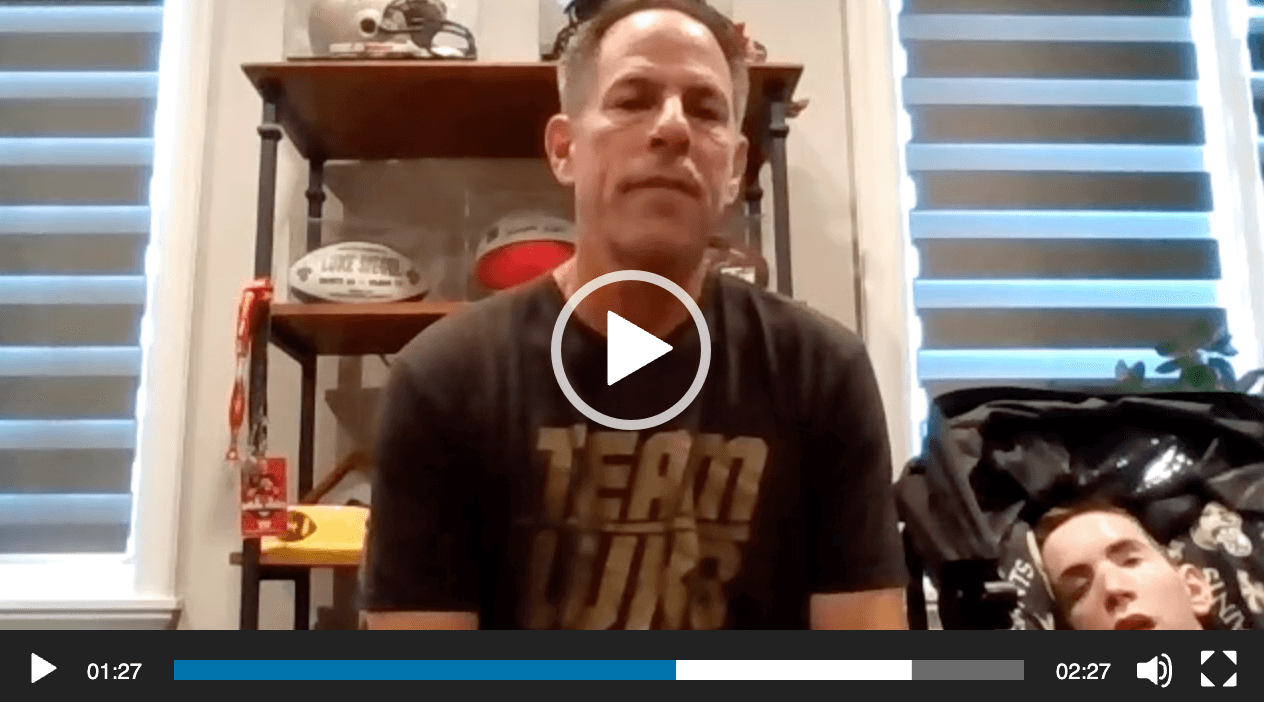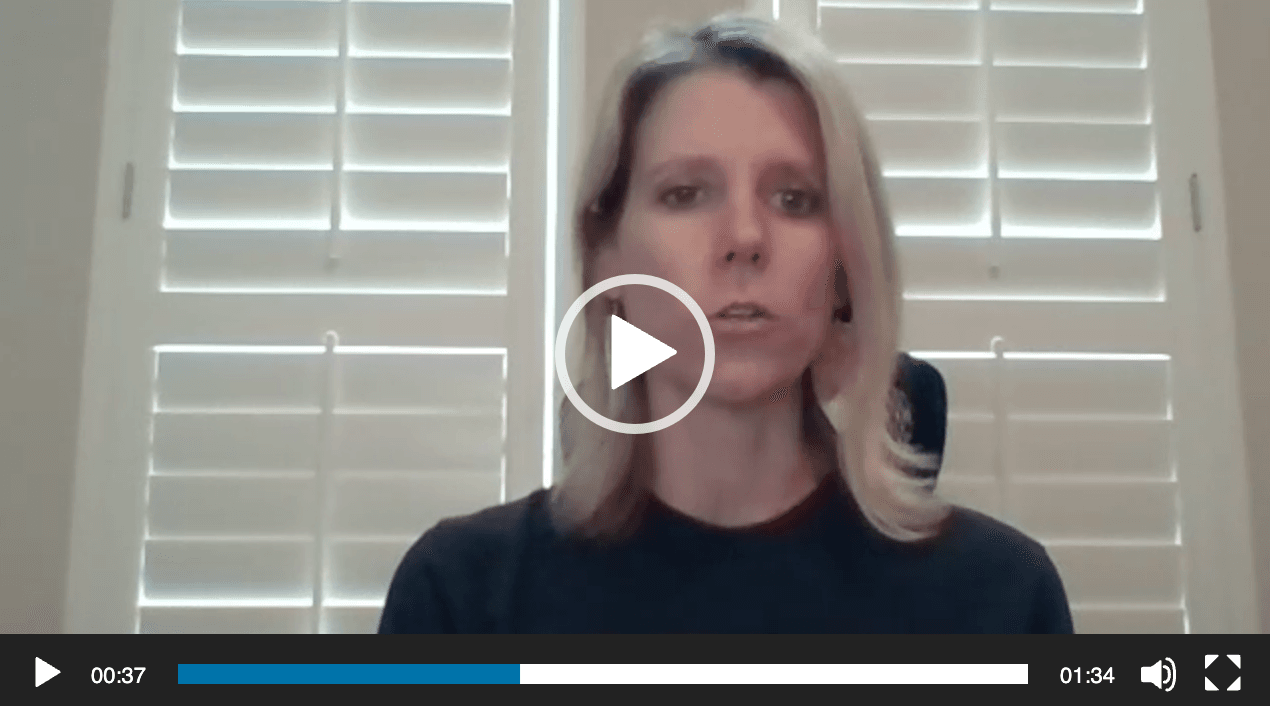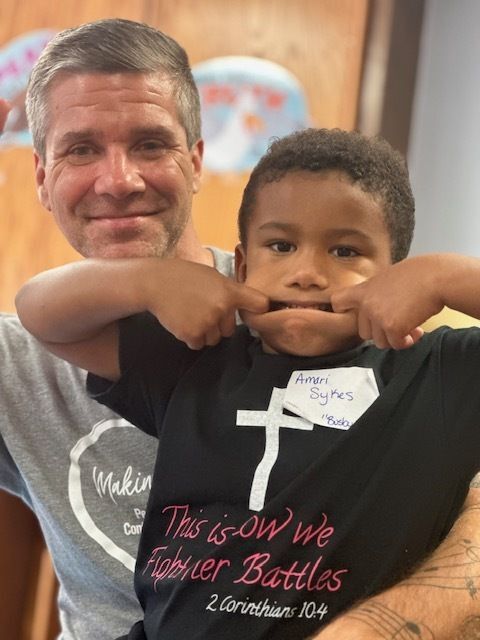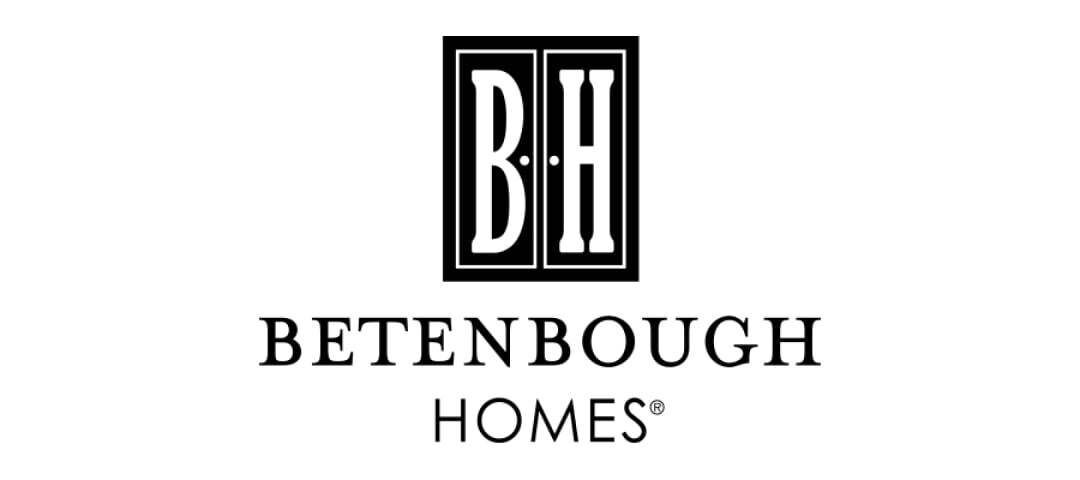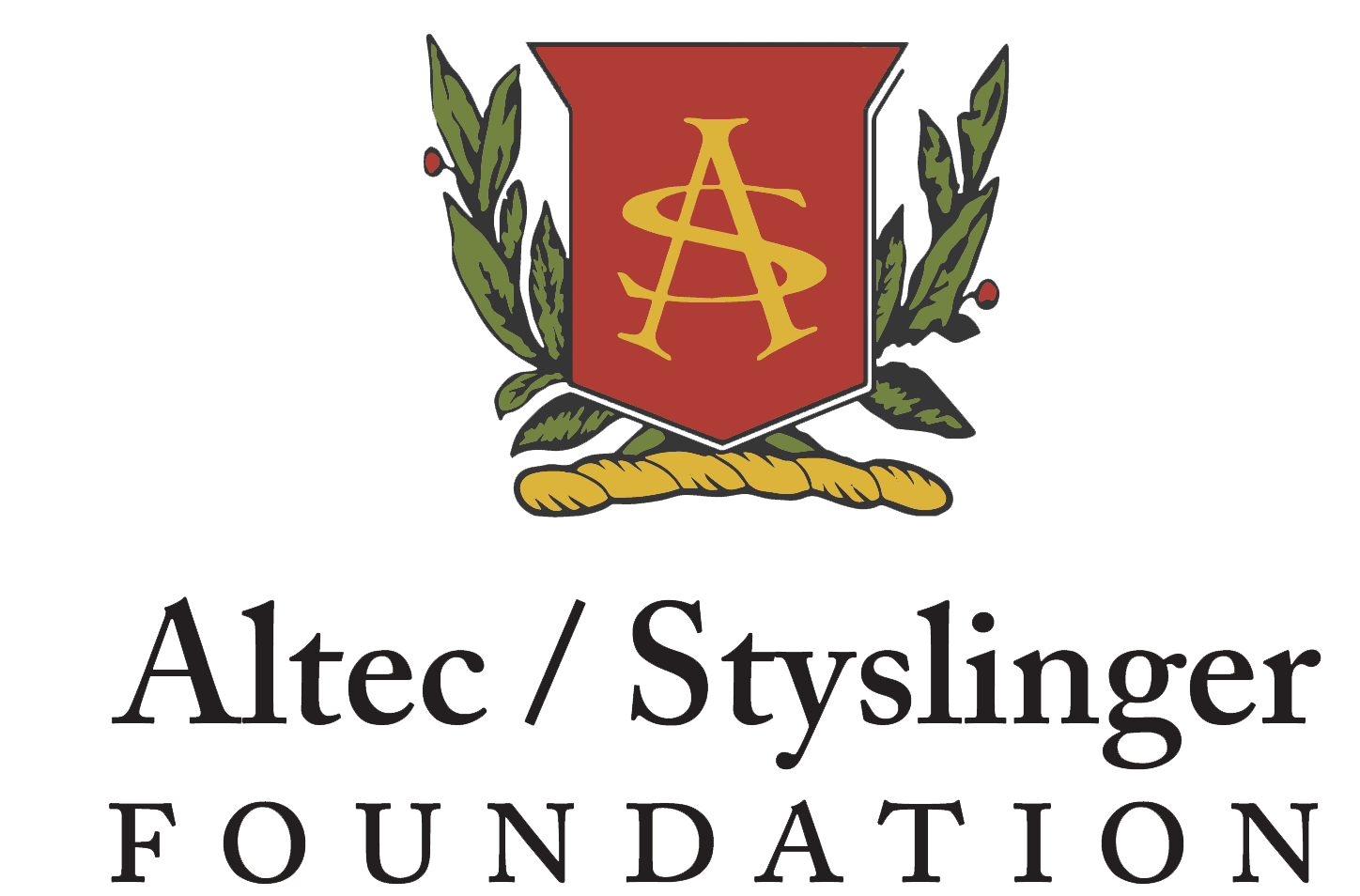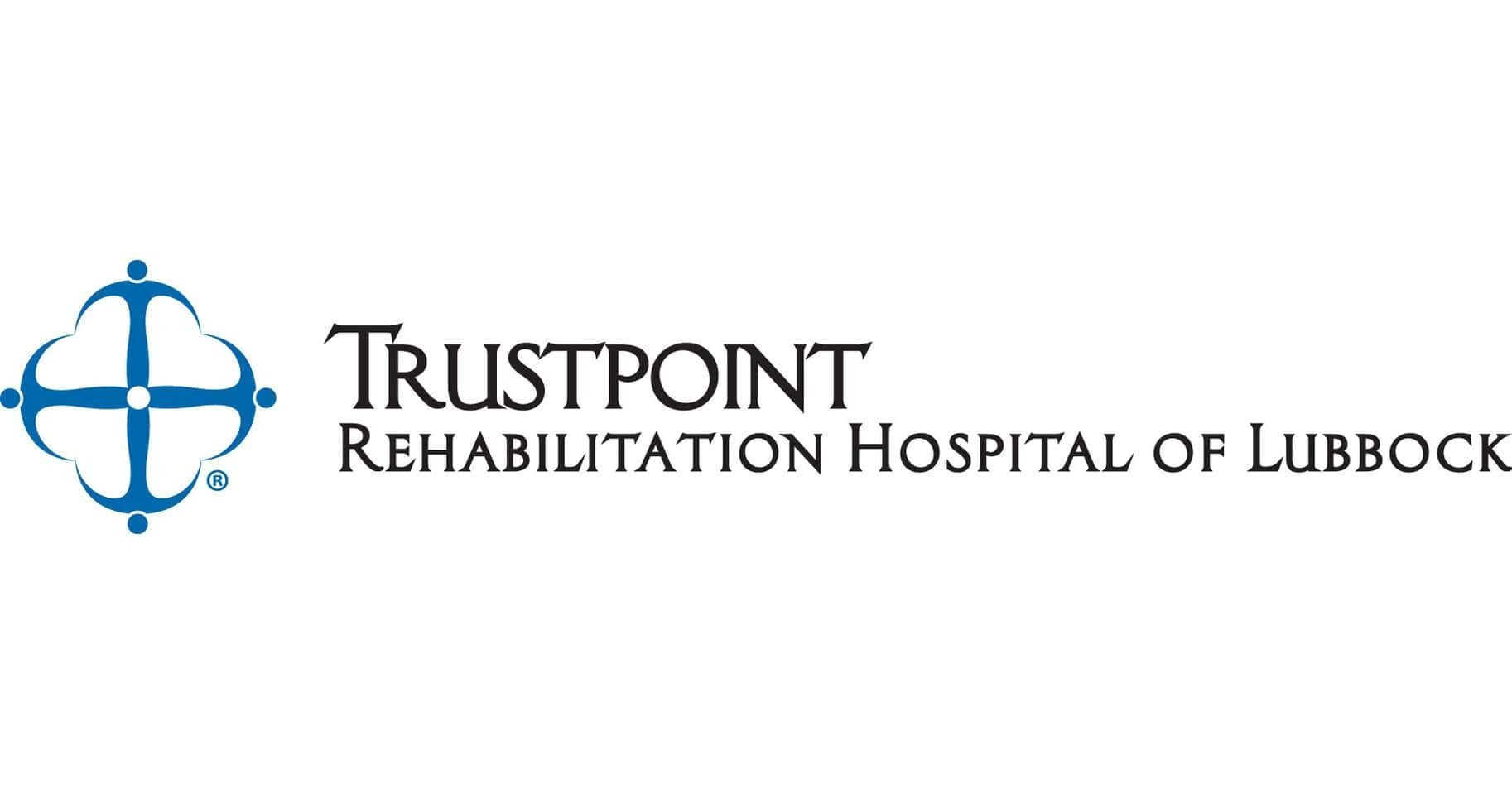
Welcome to the 2020 Making Connections Virtual Conference & Resource Fair
We are so glad you are here with us and hope you will find all of the information provided both helpful and encouraging! Below you will find a welcome video from our Executive Director, Tim Siegel, and our Director of Family Services, Ronda Johnson. Following their videos, we have provided a PDF download of the program in the event that you would like to access that. Finally, you will be able to view our sponsors, nonprofit partners, stories of hope and the presentations. If you have any questions or issues accessing anything please email us at christina@teamlukehopeforminds.org and we would be happy to assist you.
Presentations
‘3-Systems’ Brain Injury Physical Therapy
Jonathan Parr, PT, CSCS, CBIS, EP
Learn more about the 3 vital systems that play a key role in recovery from a brain injury and more about other alternative methods of rehabilitation that include Ninja Warrior and Obstacle course training concepts.
ABA & Managing Challenging Behavior
Brittany Garza,M.Ed.,RBT & Marissa Weiler, M.S.,RBT
ABA therapy is the science of understanding behavior and has been around for a long time and is used with people of all ages in a variety of settings (schools, special education, animal training, etc.) As ABA therapists we analyze behavior and identify how to increase and teach skills we want to see and decrease any challenging behavior and replace it with more functional and appropriate behavior. We help children learn skills in a variety of areas, using a variety of teaching strategies including, reinforcement, breaking skills down, and repeated practice. Join us as we discuss ABA therapy and how to prevent and manage challenging behavior.
Acupuncture for Brain Health
Dr. Daniel Finley
Brain Injury and Treating the Whole Child
Robert J. Doman Jr.
How to create better outcomes by creating a neurodevelopmental program that addresses the needs of the whole child using the science of Neuroplasticity.
Compassionate Use Program – Medical Cannabis in Texas
Christina Burke
Overview of the Compassionate Use Program and the laws around medical cannabis in Texas. Introduction to Compassionate Cultivation and our products along with success stories and feedback from patients in the program.
Concussion in the Pediatric Population
Kate Labiner, M.D.
A discussion of concussions from the mechanism of injury, neuronal injury and recovery. We will review the standard recovery course, return to learn and return to play protocols.
Did I Train for This? A Neurologist Blind-sided by his Son’s Traumatic Brain Injury
Michael Reardon, M.D.
A detailed account of one family's encounter with severe traumatic brain injury, through intensive care, inpatient rehabilitation, and return home.
Disruption & Dysregulation
Stacey Gesinger, M.A., LMFT
Tools for parenting when a child's emotions are revved and behavior is impulsive.
Forget the “New Normal": An Introduction To Empowered Neuro-Rehabilitation
Cavin Balaster
Our nutrition is so important for the function of our brains... our cognition, memory, balance, vision, immunity and everything else. Did you know that over a quarter of the calories in the food we eat is consumed by our brain? Cavin has put together a powerful presentation with plenty of resources to help anyone improve their brain function. In this presentation, you will learn how nutrition affects your unique physiology, how those reactions affect the brain, and how you can eat to support brain function.
Guardianship – From Start to Finish
Attorney Boyd Handley
What do you do when your loved one cannot care for themselves, either partially or completely? We all want our loved ones to live meaningful lives but sometimes they may lack the capacity to do so independently. That’s when a discussion about Guardianship and Alternatives to Guardianship is prudent.
Harch HBOT for Pediatric Brain Injury, Why Precision Dosing Protocols Are Imperative
Paul G. Harch, M.D.
Dr Harch knows that precision HBOT dosing protocols are imperative in the pediatric population. "The pediatric brain is exquisitely sensitive to HBOT.” He will share his knowledge & observations reflecting his 34 years of experience treating all different types of pediatric brain injury. His brain injury patients have unsurpassed recovery & healing results. Why healing the delicate pediatric brain requires constant observation by the HBOT physician in order to ensure a steady recovery process. Rebuilding the pediatric brain can be done, it has been done & it’s a glorious work of art.
Harnessing the Power of Neuroplasticity to Restore Physical Function
Garrett Salpeter
How Canine Companions Assistance Dogs Can Help Children with Brain Injuries
Kate Incremona
1. Canine Companions Overview 2. Canine Companions dog’s Journey
- Training starting at 8 weeks with volunteer puppy raisers
- Foundation for professional training
- Socialization and basic obedience
- Professional training
- Medical and temperament evaluations
- Professional training skills, socialization, evaluations
3. How Canine Companions professionally trained assistance dog can support children with brain injuries
- Relationship with clients throughout duration of working life
- Deliveries of retrieved items
- Companionship for child and family
- Speech therapy, occupational therapy, physical therapy
- Decrease behavioral , fear and resistance, difficulty making transitions
- Emotional support at doctors appointments
How To Feed A Brain Nutrition for Optimal Brain Function and Repair
Cavin Balaster
When it comes to restoring the health and function of our brains and bodies, standard medicine falls short. Because restoring health and function is not what our medical model is set up to do. When it comes to saving lives, our medical model is phenomenal. Because saving lives is what it is set up to do. This can be a difficult realization. It can also be an empowered place to equip ourselves with knowledge, skills, and partnership to take control of our own health and recovery, and the health and recovery of our loved ones.
Intensive Model of Therapy
Emily Norlock PT, DPT
The Intensive Model of Therapy (IMOT) is increasingly used throughout the world as patients, therapists, and doctors recognize it’s many benefits and outstanding results. The IMOT may include any combination of physical therapy, occupational therapy, and speech therapy and is a customized program for each patient that varies in time, duration, intensity, and tools used.
Laser Therapy in Functional Neurology Setting
Dr. Brandon Crawford
In this discussion Dr Crawford will discuss these many intricacies regarding using laser and light therapy on the brain and body to speed up recovery.
Managing Challenging Behaviors in Crisis and Calm
Richard O. Temple, Ph. D.
This presentation will review fundamentals of behavior modification in an easy-to-understand format and provide practical suggestions and strategies for managing problematic behaviors regardless of the underlying climate or situation.
Medicaid Waivers - Texas
Elizabeth Tucker
The session will provide information to families on Texas Medicaid waiver programs as well as some commonly utilized services that support children with disabilities to live meaningful lives surrounded by their family and friends.
Mindfulness and Meditation
Bianca Bentzin, LMFT-Associate
Mindfulness meditation has been used for centuries to help people learn to live in the present, find peace, and used as part of a treatment plan for a variety of mental illnesses and disorders. Meditation has been proven to improve neurological, psychological and emotional well-being. Brain scans of those who meditate regularly reveal positive and profound changes in brain matter and organization. This presentation will use brain science and practical experience to address topics such as: What exactly is mindfulness meditation? What are the benefits of a regular meditation practice? Even when we know the benefits, what keeps us from meditating? How to get started with a meditation practice.
Music Therapy and TBI
Grace Gomez, MT-BC, NMT
Orthopedics and the Injured Brain
Dr. John Roaten
The pyramid of neuro-rehabilitation is a way of assessing and treating people with brain injuries from the most foundational and fundamental aspects to the most complex. The three foundational levels include the autonomic nervous system which encompasses the "fight or flight" and "rest and digest" systems, neurological reflexes that affect muscle tone, perception of movement, and spatial orientation, and thirdly primitive reflexes. Higher functions, like gross or fine motor movement and behavior, need a strong foundation to work properly. Learn how and why rehabilitating the foundation may improve the outcomes of other therapies.
Pyramid of Neuro-Rehabilitation
Emily Kalambaheti, DC, DACNB, FACFN
The pyramid of neuro-rehabilitation is a way of assessing and treating people with brain injuries from the most foundational and fundamental aspects to the most complex. The three foundational levels include the autonomic nervous system which encompasses the "fight or flight" and "rest and digest" systems, neurological reflexes that affect muscle tone, perception of movement, and spatial orientation, and thirdly primitive reflexes. Higher functions, like gross or fine motor movement and behavior, need a strong foundation to work properly. Learn how and why rehabilitating the foundation may improve the outcomes of other therapies.
Rehabilitation: The Long Road to Recovery
Kristen Taylor, DO
What happens next? How families choose which therapies are needed, how frequently they're needed, and long-term goal establishment for ongoing recovery after brain injury.
Returning to School After Brain Injury
M. Cullen Gibbs, PhD
This presentation will discuss important factors to consider for students returning to school following brain injury.
Spasticity Management: A Physiatrist’s Perspective
Dr. Patrick Spicer
We'll take a look at spasticity, how we measure it and how it can be treated.
Special Needs Planning – Key Steps to Achieving Financial Success
Allison Schaberg
As a parent of a child with special needs, you know there are many decisions to be made as it relates to the future of your special needs family member. Considerations such as transitioning, future care options and preservation of benefit eligibility are a few items that require intentional evaluation. These are especially important if you have a child who may need care for the rest of their life.
Speech Generating Devices and TBI’s
Kirstin White, B.S.-SLP
What is an SGD/AAC, when is a good time to try, what access methods are available, what pre-requisites we are told a child needs, and the myths that surround devices.
Spero Rehabs Fundamental Focus on Recovery to Foster True Functional Independence
Brooke Aarvig, OTR/L, CBIS
Spero Rehab is a cutting edge outpatient neurological setting that treats pediatrics and adults who have experienced a loss in functional independence as a result of a neurological insult to the brain or spinal cord. At Spero Rehab, our team is focused on advancing foundational skills related to core stabilization and upright posture. Improving these foundational skills has been proven to directly translate to improved functional independence within the home and community. This presentation will provide an introduction to the facility, our team, cutting edge equipment and innovative treatment techniques that are used during therapy.
Stem Cell Therapy for Neurologic Injury
Vassily T. Eliopoulos, M.D.
Dr. Eliopoulos will go over the current understanding of the fundamental mechanisms of cellular therapy, talk about different types of cellular therapy, cover different aspects of these therapies when applied to Central Nervous System Injury and finally go over some case studies.
Testing and Supporting Nutrients for the Brain
Pam Machemehl Helmly
A review of healthy nutrients, the importance of a healthy GI tract, chemicals to watch out for as well as ways to test at home for neurotransmitter levels will be discussed. Brain wellness nutrients and balance will be included as well.
The Blueprint for Brain Recovery
Dr. Brandon Crawford
In this discussion Dr. Crawford will review the neuro developmental blueprint for brain rehab.
The Effect of MNRI Reflex Neuromodulation Program on Neurosensorimotor Improvement in Individuals with Diagnosed TBI Compared with Results of QEEG Brain Mapping and Neurotransmitters Analysis
Andrey Boldyrev
QEEG brain mapping analysis of TBI diagnosed patients after MNRI reflex integration.
The Well-Oiled Brain
Beverly Boytim
Using Essential Oils, Herbs and Diet for Brain Healing
Tips for Launching Your Special Needs Teen into Adulthood
Allison Schaberg & Dr. Lindsay Asawa
As special needs children transition to the teen and young adult years, their needs change significantly. You can prepare your child (and yourself) for a successful transition to independence. From diagnosis to transition, learn the key steps you can take to make the transition as smooth as possible.
Transitioning Into Adulthood (Texas focused)
Lindsay Heath, Ph.D., LSSP, CBIS & Bruce Bloom, M Ed, CRC, CAS, IPEC
We will discuss transitioning from childhood to adulthood and long-term planning. A variety of Texas resources will be provided and discussed, including input from a vocational specialist.
Using the Power of Neuroplasticity to Help Heal the Brain
Dr. Ryan Cedermark, DC
In this talk, we will be discussing areas of the brain commonly injured in a brain injury patient, how to assess for areas of dysfunction, and ways to help the brain heal.
Vision & Brain Injury
Dr. Briana Larson, OD, FCOVD, FAAO, FNORA
Vision makes up 80% of the sensory input to the brain and is processed in every lobe of the brain. Learn how Brain Injury affects vision and the impacts of visual dysfunction on quality of life, potential and recovery. Key visual systems and skills will be reviewed including eye tracking, teaming, focusing, visual-balance, visual-motor, and visual memory. See how visual rehabilitation can improve visual skills and visual integration after brain injury and significantly improve signs and symptoms such as double vision, blurred vision, headaches, dizziness, light sensitivity, decreased depth perception, reduced peripheral vision, poor memory, reduced stamina, poor reading and writing skills, reduced attention and focus. Learn how treating visual deficiencies can improve academic potential, sports skills, activities of daily living, and overall function.
What is SSI and How do I get it?
Barbara Bush
This presentation will explain Supplemental Security Income and how to apply for these benefits. We will show you how to maximize these benefits by using an ABLE account and how your parents retirement or death affects these benefits.
Sponsors
Please take a minute and check out our event sponsors. This conference is made possible due to their generosity and we appreciate them more than they know. Click any of the sponsor names or levels below to learn more about our 2020 sponsors. Our sponsors are also resources for you and your family.
Platinum Sponsor – The Austin Center for Developing Minds
Diamond Sponsor – Child Neurology Consultants of Austin
Diamond Sponsor – Cook Children’s
Silver Sponsors – A&P Quality Care Medical & Infinity Specialty Services
Bronze Sponsor – Nexus Children’s Hospital
Partner Sponsors – Freedom Concepts, Plasticity Centers, and Rocky Mountain Regenerative Medicine
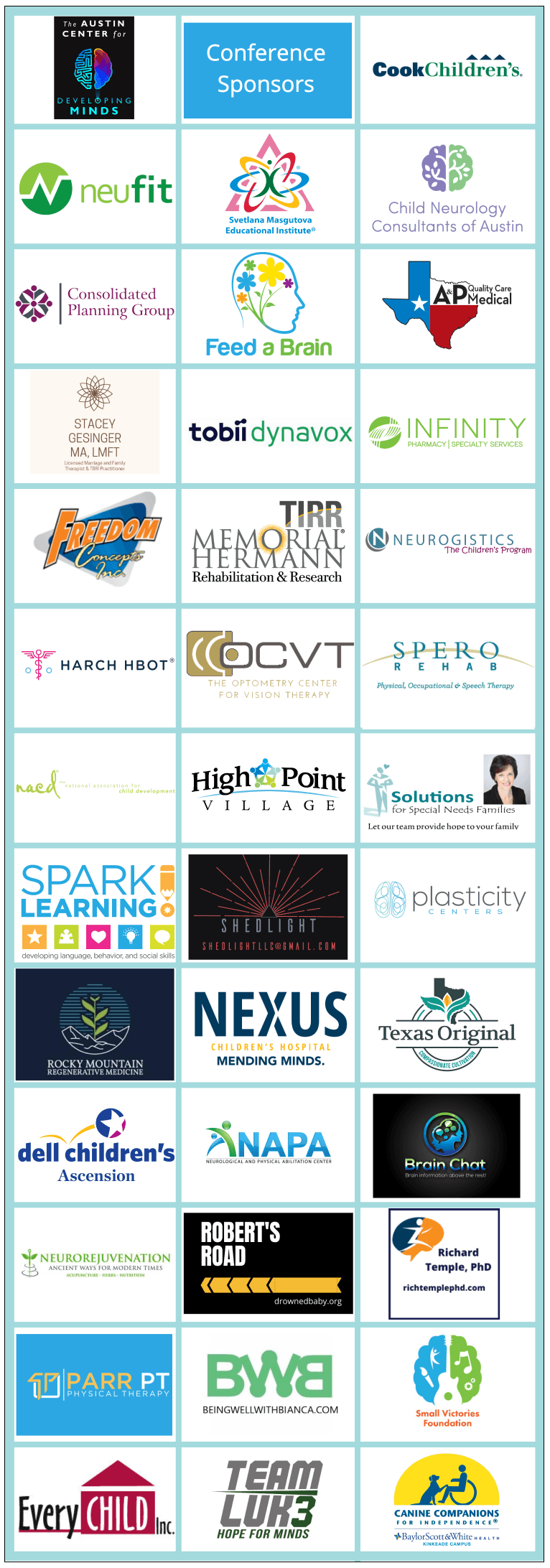
Nonprofit Sponsors
Below you will find a number of nonprofit sponsors that might be a valuable resource to you and your child. We encourage you to check them out when you have time. As always, we strive to be a trusted partner of yours and hope you will contact Ronda if there is any way that we can assist you and your child. You can reach her at ronda@teamlukehopeforminds.org.
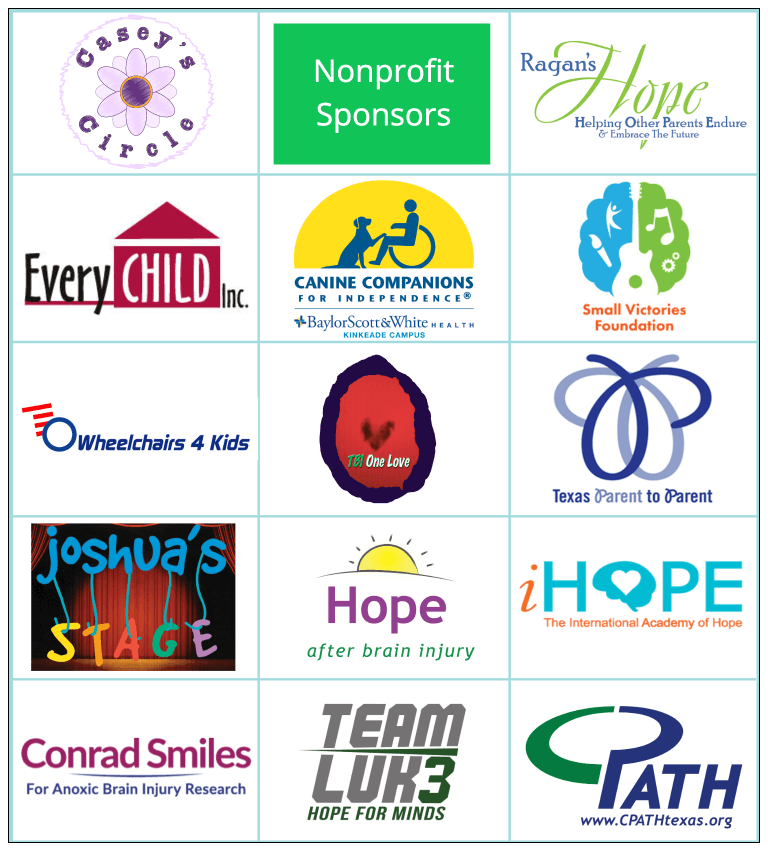
Making a meaningful difference in the pediatric brain injury community!
-
States Served
47
-
Luke's legacy lives on daily, even in conversations between a father and daughter that he never met.

